Neurology
Additional Resources
Find a neurologist in El Paso, TX at The Hospitals of Providence.
The Dizziness and Balance Center offers comprehensive testing, diagnostics and treatment for disorders related to balanc...
The Epilepsy Monitoring Unit at The Hospitals of Providence Sierra Campus specializes in the diagnosis and treatment of ...
Location Clues for Headaches
When your head hurts, you only want the pain to GO AWAY. See the head locations indicated for possible causes and treatments. If headaches persist, talk with a doctor.
Eye Area
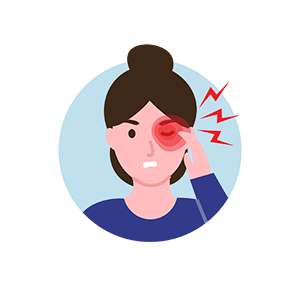
Cluster Headache
Symptoms: frequently develops during sleep and also have tearing in the eye, nasal congestion, face flushed. May last for several hours.
Causes: alcoholic beverages, excessive smoking
Treatment: oxygen; ergotamine; sumatriptan, intranasal anesthetic
Eye Strain
Symptoms: bilateral pain in the front of the head
Causes: muscle imbalance, uncorrected vision, astigmatism
Treatment: corrected vision
Frontal Area
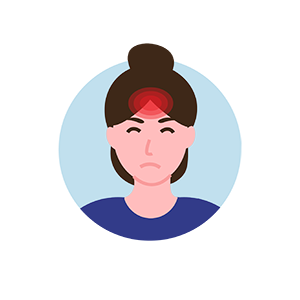
Fasting Headache
Symptoms: mild to moderately intense pain, diffused (not pulsing)
Causes: insufficient food or hydration
Treatment: eating (may take up to 72 hours for pain to subside)
One Side of Head
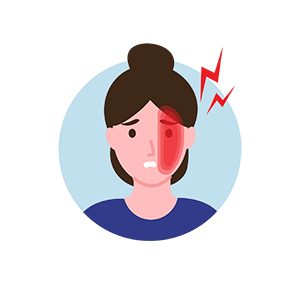
Migraine With or Without Aura
Symptoms with aura: warning signs such as visual disturbance or arm or leg numbness; after warning, severe pain
Symptoms without aura: no warning signs; severe, one-sided throbbing pain, may be accompanied by nausea, vomiting, cold hands, sensitivity to light and sound
Causes: may be hereditary, food-induced, hormonal, excessive hunger, change in altitude, weather, lights, excessive smoking, stress
Treatment: medication may be effective for migraines with aura; when pain begins, use ice packs, products with caffeine, ergotamine, prescribed medications or steroids; please see a doctor if you have migraines
Nasal Area
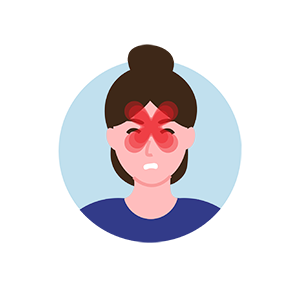
Sinus Headache
Symptoms: gnawing pain that often increases throughout the day
Causes: infection, nasal polyps or other blockage such as a deviated septum
Treatment: aspirin; acetaminophen; NSAIDs; antibiotics
General / All Over
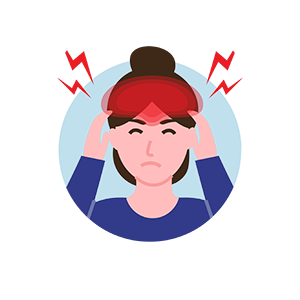
Fever Headache
Symptoms: pain that accompanies fever
Causes: infection swelling of the blood vessels in the head
Treatment: aspirin; acetaminophen; NSAIDs; antibiotics
Hangover Headache
Symptoms: throbbing pain and nausea
Causes: alcohol (dilates and irritates blood vessels in the brain and surrounding tissue)
Treatment: liquids (including broth); fructose such as honey or tomato juice)
Hunger Headache
Symptoms: pain before mealtime
Causes: skipping or delayed meals, low blood sugar, muscle tension
Treatment: regular, nourishing meals with adequate protein and complex carbohydrates
Hypertension Headache
Symptoms: generalized or ‘hairband’ area pain that is most severe in the morning, diminishing during the day
Causes: severe hypertension
Treatment: managing blood pressure levels, such as with medication
Sources:
National Headache Foundation
